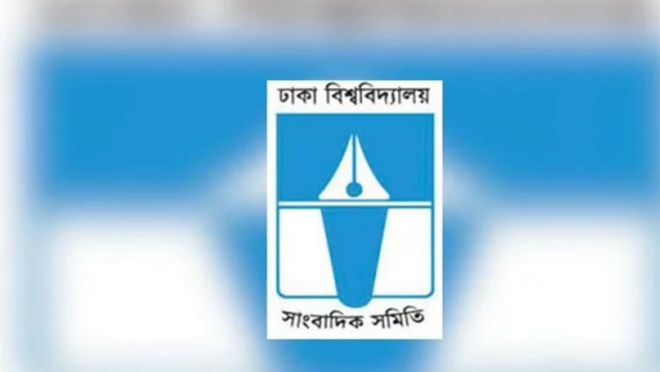Campus journalists still unrecognised, even a year after uprising
Campus journalists still unrecognised, even a year after uprising

A year after the historic 2024 Mass Uprising, campus journalists who risked their lives to expose brutalities and tell the truth remain neglected, unheard, and unrewarded.
These concerns echoed in a special discussion meeting titled “Kew Kew Kotha Rakhe” held yesterday (13 July) at the Muzaffar Ahmed Chowdhury Auditorium of Dhaka University.
Organized by the Bangladesh Democratic Students’ Council, the event brought together campus reporters, media professionals, academics, and civil society members who voiced sharp criticism over the absence of institutional support, state recognition, and minimum facilities for student journalists.
Jahangirnagar University correspondent for Jugantor Moshaddequr Rahman recalled the silent media landscape during the early days of the uprising.
“When the nation’s conscience slept, campus journalists stood against batons and sound grenades to tell the truth,” he said, adding “It has been a year but no one remembers where we stood. We’re not asking for awards- we’re demanding a minimum salary scale, professional security, and opportunities to grow.”
Mohiuddin Mujahid Mahi, President of the Dhaka University Journalists’ Association (DUJA), noted that the situation for campus journalists has become even more precarious. “If our reports don’t align with someone’s interest, we’re either threatened or ignored. There’s no salary structure, no healthcare, no institutional safety. Even after the movement, neither the Information Ministry nor media authorities spoke even a word about our rights.”
Echoing similar frustrations, DUJA Office Secretary Tausiful Islam recounted the horrors of covering the 19 July crackdown at Dhaka Medical College Hospital.
“We were there when our friends bled. We sent stories and footage from Shahbagh and Science Lab, sleepless and scared. Yet today, our courage gets us no recognition but only more exploitation.”
Speaking at the event, Emran Mahfuz, Literary Editor of Daily Star Bangla, drew a comparison with the 1971 Liberation War.
“Even during the war, university halls remained open. But in 2024, they shut everything down to stage a massacre. Campus journalists documented it all- risking arrests, injuries, even death. Yet the media houses they serve don’t even pay them a decent honorarium,” Emran Mahfuz noted.
Emphasising broader implications in this regard, ULAB Professor Dr Waliur Rahman said, “Campus journalists created a living archive of the 2024 Uprising. Their contribution to the media landscape of Bangladesh is immense. Still, there are no scholarships, awards, or training initiatives for them.”
He called for urgent collaboration among university administrations, media houses, and rights organizations to safeguard student journalists.
Jatrabari madrasa teacher Riduan Hasan pointed to the pattern of misinformation during past political cycles. “In 2018 and 2022, the mainstream media pushed false narratives. The same happened in 2024. But campus journalists risked everything to report the truth. And yet, they are now forgotten.”
AFP journalist Mohammad Ali Majed noted the crucial role of campus reporters during the movement. He said, “When the ruling party’s student wing unleashed terror on campuses, campus journalists bore the brunt. Still, their rights remain ignored even after a year.”
Spokesperson of the Democratic Students’ Council Ashrafa Khatun presented honorary crests to several campus reporters.


